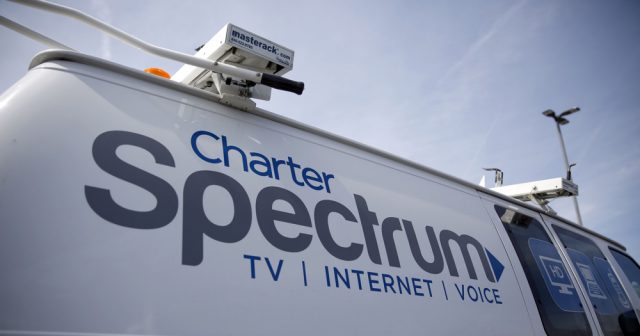 Comcast and Charter Communications have no real interest in competing head-to-head in wireless with AT&T, Verizon, T-Mobile, or Sprint. Instead, the two cable companies hope to trap you in a bundled package of services too inconvenient to cancel.
Comcast and Charter Communications have no real interest in competing head-to-head in wireless with AT&T, Verizon, T-Mobile, or Sprint. Instead, the two cable companies hope to trap you in a bundled package of services too inconvenient to cancel.
Jeff Kagan, a longstanding telecommunications analyst specializing in the cable industry, believes Comcast, Charter, and other cable operators entering the wireless business have no intention of being a serious competitor to the country’s four largest mobile companies.
“The goal of XFINITY Mobile [from Comcast] is to offer their customers another service and to create a sticky bundle,” Kagan said. “It’s not to lead the wireless wars. It’s not to increase their market share for traditional reasons. It is simply to create a sticky bundle to stabilize and grow their customer base.”

Kagan
XFINITY Mobile and Spectrum Mobile (from Charter), both require customers to be signed up for their respective internet services. If a customer cancels internet service, they will lose their mobile service. That could prove to be a major hassle for wireless customers, because they will have to properly port out their existing phone number(s) to another provider before dropping broadband.
Kagan believes cable operators will use mobile service to further strengthen their bundle by tying discounts to the number of services each customer takes through the cable company.
“Customers who use one service find it easy to switch away to a competitor,” Kagan said. “However, when they use multiple services and get a discount for the bundle, they become sticky and generally stay put. And the more services a customer uses, the larger the discount, the stickier they get and the less likely they are to wander.”
That is also likely to be true with Altice, which operates Optimum (Cablevision) and SuddenLink and has partnered with Sprint to offer cell service.
Sprint and T-Mobile, which are planning to merge, have repeatedly argued cable operators will be aggressive new players in the mobile business, giving the potentially combined carrier fierce new competitors. But Kagan doubts that will prove true.
![]() “The problem is, the sticky bundle is not a low-cost solution,” Kagan offered. “With that said, the higher cost to the cable television companies is less than that of losing their customer base. So, the cost makes sense as simply a cost of doing business.”
“The problem is, the sticky bundle is not a low-cost solution,” Kagan offered. “With that said, the higher cost to the cable television companies is less than that of losing their customer base. So, the cost makes sense as simply a cost of doing business.”
The challenge cable operators face is that none plan to own and operate their own traditional cellular network. Comcast and Charter have partnered with Verizon Wireless to resell access to its 4G LTE network and Altice will rely on Sprint. Leasing access on an ongoing basis is likely to be more expensive that relying on your own network, but beyond offering Wi-Fi calling and experimental access to future 5G-type services in the emerging CBRS band, cable operators will remain almost completely dependent on their wireless provider partners, limiting their effective ability to compete.
Kagan believes the goals of the two industries are different. Wireless operators are trying to monetize their networks through usage, while cable operators are trying to find new services that will keep customers loyal and are willing to ignore monetizing their wireless side businesses to achieve that goal.


 Subscribe
Subscribe Epix, the newest premium movie channel on the block, is giving up on exclusive pay television distribution and has launched a new $5.99/mo direct-to-consumer subscription service, beating anticipated services from AT&T WarnerMedia and Disney.
Epix, the newest premium movie channel on the block, is giving up on exclusive pay television distribution and has launched a new $5.99/mo direct-to-consumer subscription service, beating anticipated services from AT&T WarnerMedia and Disney. Despite the growing impact of cord-cutting, Comcast is following companies like Charter Spectrum by cutting back customer retention discounts that savvy subscribers negotiate to keep their cable bill reasonable. Despite losing more than 344,000 cable television customers in 2018, almost twice as many as it lost in 2017, Comcast has lost interest in cutting prices to keep customers.
Despite the growing impact of cord-cutting, Comcast is following companies like Charter Spectrum by cutting back customer retention discounts that savvy subscribers negotiate to keep their cable bill reasonable. Despite losing more than 344,000 cable television customers in 2018, almost twice as many as it lost in 2017, Comcast has lost interest in cutting prices to keep customers. “Time Warner wanted to make a video number, and there were data packages that cost less if you took video than if you didn’t,” Rutledge said. “And a lot of those were churning out. And a lot of them were basic-only. So on the margin, at the end – in the last year, I think they were selling 40% of their connects as basic-only. [TWC had] 90,000 different promotional offers, many of them deeply discounted and piled on top of each other.”
“Time Warner wanted to make a video number, and there were data packages that cost less if you took video than if you didn’t,” Rutledge said. “And a lot of those were churning out. And a lot of them were basic-only. So on the margin, at the end – in the last year, I think they were selling 40% of their connects as basic-only. [TWC had] 90,000 different promotional offers, many of them deeply discounted and piled on top of each other.”

 Charter is expecting it can distribute more of its revenue to shareholders, share buybacks, and debt payments as a result of the completion of its all-digital conversion project, which eliminated analog television signals from cable systems to make more room for revenue-enhancing internet service. The company also gets to lease more set-top boxes to customers seeking to view digital television signals on older analog TV sets.
Charter is expecting it can distribute more of its revenue to shareholders, share buybacks, and debt payments as a result of the completion of its all-digital conversion project, which eliminated analog television signals from cable systems to make more room for revenue-enhancing internet service. The company also gets to lease more set-top boxes to customers seeking to view digital television signals on older analog TV sets. Stop the Cap! today appealed to New York’s Freedom of Information Law Officer to force Charter Spectrum to unredact customer complaint statistics on Charter Communication’s performance in New York since its 2016 merger with Time Warner Cable.
Stop the Cap! today appealed to New York’s Freedom of Information Law Officer to force Charter Spectrum to unredact customer complaint statistics on Charter Communication’s performance in New York since its 2016 merger with Time Warner Cable.


